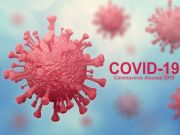
(HealthDay News) — A jump in coronavirus cases is being seen in nearly a dozen U.S. states, at least half of which reopened early, as the country’s coronavirus case count neared 1.7 million on Wednesday. Though the overall national trend has been staying steady or dropping, Alabama, Florida, Georgia, South Carolina and Tennessee are some… read on >





























